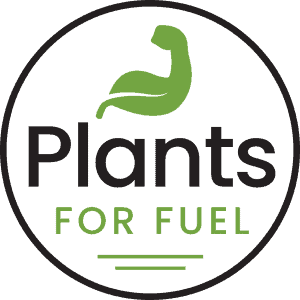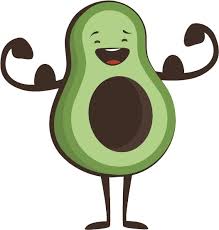This was undoubtedly the number one question in relation to veganism and has somewhat reduced in frequency during recent years. That has got to be a good thing as it indicates that many of the former myths have been debunked and those who previously asked this question now have the information that they desired.
If you are still unsure whether or not vegans can get enough protein and what vegan protein sources are available then you should read on as we give you some insight into great protein sources and our opinions on them. Here are eight protein sources for vegans.
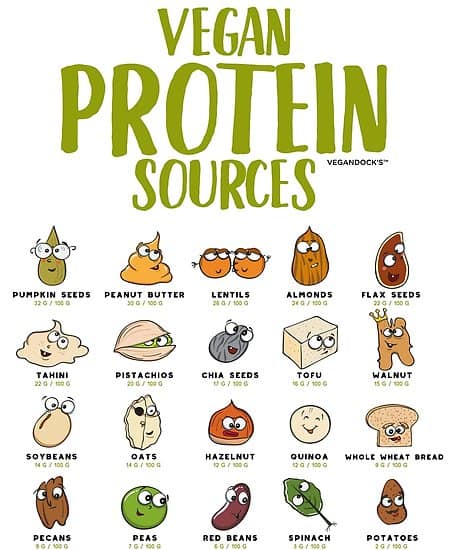
Protein Powders
We wanted to tackle this aspect first as many also wonder what are the best plant based protein powders. There are plenty of fantastic vegan protein supplements free of whey and egg that also pack a bundle of key micro and macronutrients. It can be great to get a supplement that is derived from natural raw ingredients and a company that use an isolating process that does not heat or cook the hemp or pea protein. Adding a powder that provides 25 grams of protein can be a great boost and often adds more taste to a smoothie when you choose the likes of Toffee Fudge or Banana as mentioned in the article above but as vegans we do not need to rely on these sources when making the most of a wholefood plantbased diet.
Greens
This is something that has been circulating in recent times; you have probably seen the comparison between beef and broccoli? The message behind the infographic is powerful as it displays how we may have overlooked the protein content in green vegetables. Is broccoli full of protein? It packs nearly 3 grams per 100 grams and is full of healthy minerals- the protein is a bonus. In terms of quantity, it will not match the protein in a meat serving. But does this matter? No, I would prefer to have food that we thrive on full of amino acids that are completely bioavailable and not full of animal fats and suffering. Never overlook the protein content available in our veggies.
Quinoa
One of my favourite grains as it does not undergo the same process as rice that is largely a processed grain unless found in its wild form, a subject for another day. But another thing that we love about quinoa is that it brings a lot more protein to the table than rice too.
Quinoa vs Rice
Although in the aforementioned paragraph we label quinoa as a grain, in the botanical sense it is far from a grain and is actually closer to spinach or beetroot. That aside, we much prefer quinoa over rice as it has less impact on our digestive system and isn’t processed like most grains.
Legumes: Lentils & Beans
For those that like to ensure high protein but steer away from “fake meats” should be incorporating legumes into their meals. Legumes are lentils and beans, some legumes are mistakenly put into the nut category such as peanuts that are actually a legume. Lentils and beans should be a staple of our diet, it can be great to find an organic source where you can soak the dried legumes the night before. You can also get organic tins, where you can rinse them before use and then cook them with your dish. There is a huge list of beans that include kidney beans, chick-peas, butterbeans, adzuki beans and more.
Tofu & Tempeh
Some of the meat replacement sources such as tofu offer a high protein content and lower carbohydrate content unlike many vegan protein sources. Carbs are our friends and should not be demonised like they have in the past. Tofu is another food that has been demonised and again, that is something that deserves an article to itself. You can search for Phytoestrogen and make up your mind on that but one thing that we do know, is that soy is one of the most genetically modified crops on the planet and for that reason you should be looking for organic products.
Tempeh can be so tasty, it is made up of soybeans, again look for organic. There is no reason that these two high protein foods cannot be enjoyed from time to time although we always encourage wholefood based sources such as legumes.
Hemp
Hemp powder and hemp protein is what many of the top protein powders utilise in their supplements. It is possible to get just hemp powder and add to your smoothie. Be warned, it isn’t the tastiest but you will be sure to gain bioavailable protein, 32 grams per 100 grams of hemp. Plus it is packed full of antioxidants, a complete protein and fibre.
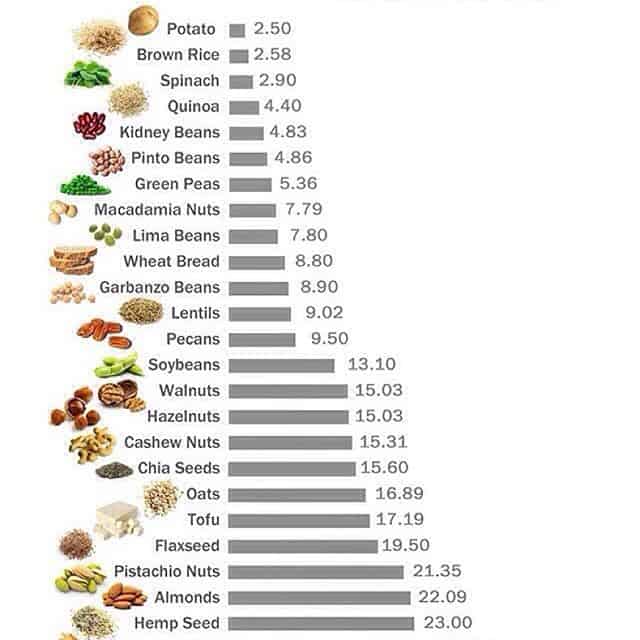
Nuts & Nut Butters
Although high in fat, they also come high in protein. Again, fat is essential and should be consumed via foods such as nuts and nut butters. Get your hands on walnuts, cashews and almonds. You will be able to get your essential fats for brain health as well as adding to your protein for the day. You can also use the nut butters to replace dairy, with almond, cashew and other nut butters. In addition to nut butter, get your hands on nut milks such as almond milk and cashew milk.
- Walnuts
- Cashews
- Pistachios
- Almonds
- Hazelnut
- Almond butter
- Cashew butter
- Almond milk
- Cashew milk
- Walnut milk
Seeds
Like nuts, seeds are a great source of healthy fats and protein. They also have an assortment of nutrients. Many seeds are a great way to get omega-3 and seeds such as pumpkin seeds even help kill off parasites in our gut. You can mix pumpkin seeds, sunflower seeds, chia seeds or flax seeds into your oats, smoothie or even salad.
- Pumpkin seeds
- Sunflower seeds
- Flaxseeds
- Linseeds
- Chia seeds
- Hemp seeds
- Sesame seeds
How Much Protein Do I Need?
If you are wondering how much protein you require on a vegan diet then you should know that it is the same amount that non-vegans need. There are ways to calculate how much you generally need. You need 0.8 grams per kilogram of your bodyweight. If you are an athlete or train a lot then you should have around 1 gram to 1.2 grams per kilo. This is easy to maintain when filling your diet with good, wholesome, real food!
Can You Get Enough Vegan Protein as a Vegan Athlete?
Of course, as we have mentioned there are so many vegan protein sources readily available and not only do they showcase a complete amino acid profile they are also packed full of nutrients. There are many vegan athletes now performing and outclassing competition, if you are looking for some vegspiration then check out Torre Washington, Chase Armitage, Patrik Baboumian and Nimai Delgado.
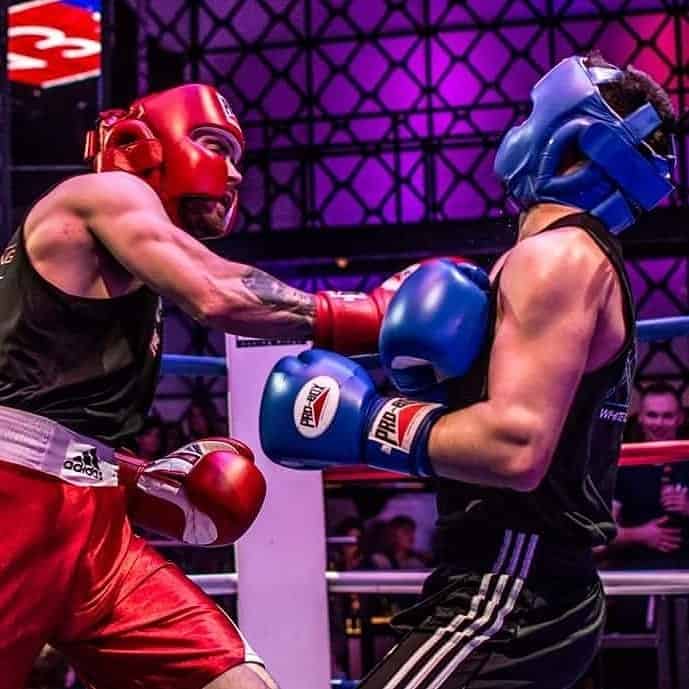
Getting Help- Going Vegan?
If you are looking to go vegan or maybe vegan looking for guidance then check out some of our plans and transformations on our homepage. You can also contact us on Instagram- @Vegan_athletes and we will send any free vegan advice that we can.
